
IRIS login | Reed College home Volume 96, No. 2: June 2017
The Job Gap
This summer finds Reed students interning at the Paris Review, studying the art of Japanese woodblock printing in Kyoto, farming organically in the Provence, and interning at a law firm.
Learning for its own sake is a trope frequently invoked to describe a liberal arts education. Conventional wisdom, however, holds that employers flock to those college graduates with quantifiable workplace skills. Increasingly a summer internship serves as the bridge for exhibiting skills that will translate to success in the job market.
Reed’s office of career services works with students to guide them in career development, hone their interviewing skills, advise on job applications, and help them access a community of partners that includes parents and alumni. One key initiative is helping students identify and secure summer internships.
Continue reading The Job Gap
Reed Band's Debut Album Wins Acclaim

Deep in a forgotten corner of the Gray Campus Center basement, down the hall from the comic book library, Reed’s band practice room (BPR) is anything but glamorous. But for many Reedies it is a hallowed space, a place that (between 5 p.m. and 7 a.m. on weekdays, all day weekends) can incubate their energy and talent. For the last three years one group of Reedies in particular have made the BPR home. They call themselves Hausu, and this summer all their hard work is finally paying off.
Hausu is composed of Carl Hedman ’13, Benjamin Friars-Funkhouser ’14, Alexander Maguire ’14, and Santiago Leyba ’14. They are rockers in the vein of 1990s indie bands like Sebadoh and Sonic Youth, and their debut album, Total, is full of interlocking guitar pieces and post-punk snarl. Total was released by Hardly Art Records on June 25. So far it has met with nearly unanimous acclaim. The Portland Mercury called “one of the finest debut records in recent memory,” while the website Allmusic called the album “infectious,” and wrote that its single, “Leaning Mess,” felt like a “distant classic.” The album’s release was timed to coincide with Hausu’s six-week, cross-country tour, which took them from Portland to New York City and back.
Hausu recorded Total over winter break, but the band had been honing the songs on the album since their first jam three years ago. It wasn’t always easy for the band members to align their schedules: last year Carl wrote his thesis in economics, while Ben, Alex, and Santi all took the junior qual (in art history, anthropology, and studio art, respectively). “it was difficult to make time to play the music,” Carl said, “but it was an important catharsis for us to deal with academic stress.”
Continue reading Reed Band's Debut Album Wins Acclaim
Tangled up in Tango
Fanning themselves with their programs in a standing-room-only Eliot Hall chapel, the audience was transported straight to the barrios of Buenos Aires as the violins, basses, bandoneones and piano plunged into a sultry tango beat.
The nine players kicked off the grand finale of the Reed College Tango Music Institute, held June 23-30, 2013. For the next two hours, 53 musicians of varying experience and combinations showcased what they’d learned that week under the tutelage of four of the world’s preeminent tango musicians. Bassist Pablo Aslan, pianist Octavio Brunetti, and bandoneonist Julian Hasse, all Argentine-born, and U.S. violinist Nick Danielson capped the evening with a couple of virtuosic romps that lifted the applauding crowd to its feet, stomping for an encore. Many in the crowd refused to sit back down until they’d tangoed well past midnight at the milonga that followed in Student Union, led by Alex Krebs ’99.
Continue reading Tangled up in Tango
JAWing with Dominic
This summer Dominic Finocchiaro ’11 will present his new play, complex, at Portland’s JAW: A Playwrights Festival. He was one of four playwrights—chosen from more than 200 submissions worldwide—who will collaborate with theatre professionals from across the country before presenting their works in staged, public readings.
Sponsored by Portland Center Stage, the two-week JAW (short for Just Add Water) festival, spotlights new works selected through a blind submission process. complex will be presented at 4 p.m. on Friday, July 26, at the Armory. The story takes place a big city apartment complex where residents are dying in strange and gruesome ways. One tenant sets out to stop the bloodshed and mayhem.
Continue reading JAWing with Dominic
How a Galaxy Evolves
Humankind’s view of the cosmos, however magnificent, is fundamentally static. Astrophysicists know that distant astronomical objects (stars, nebulae, galaxies) are in constant motion, but this is invisible to human eyes because it takes place on a timescale which is unimaginably vast. In fact, except for the moon, the planets, and the occasional comet, the night sky has looked essentially the same for the entire history of human civilization.
Recently astrophysicists have used computers to speed things up. For my thesis with Johnny Powell [physics 1987–], I wrote a computer program to simulate the evolution of a typical spiral galaxy. The central premise is that by calculating the gravitational forces acting on a relatively small number of stars, we can simulate the evolution of a real galaxy, which consists of hundreds of billions of stars.
Continue reading How a Galaxy Evolves
Savoring the Taste of Reed
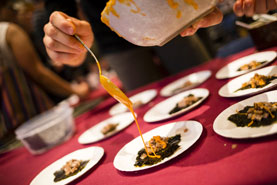
Fresh bread, sweet honey, and a crisp wine to wash to all down. It’s not heaven, but it may be the next best thing: Gastronomy Northwest, the annual festival of food and drink produced by and for alumni, was held on Saturday afternoon of Reunions ’13: Reedfayre.
Making a piquant comeback from last year were David Autrey ’89 and his partner Amy Wesselman ’91 of the Westrey Wine Company, who served a delicate 2012 pinot gris and a refreshing 2010 pinot noir (you may have heard of their rising-star sons?). Also returning was the Clear Creek Distillery, operated by master distiller Steve McCarthy ’66 and his wife, artist Lucinda Parker McCarthy ’66. The Portland distillery employs mostly Reedies and specializes in brandies and liqueurs created from the fruit grown in the family’s orchards at the foot of Mount Hood. Their summery loganberry liqueur accented the natural tartness of the berry while perfectly satisfying the sweet tooth.
Continue reading Savoring the Taste of Reed
Fanfayre ’13 Looks Back, Looks Ahead
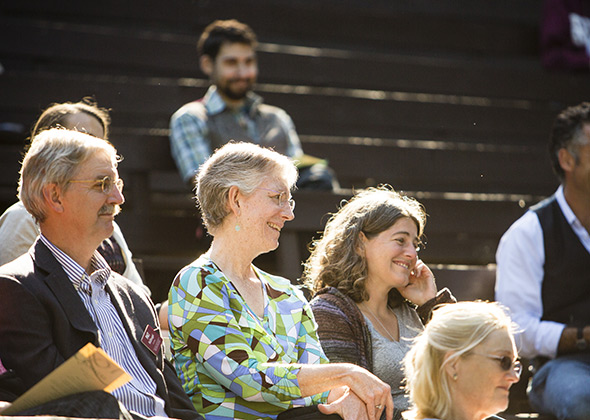
Retiring profs, including (left) Pat McDougal [chemistry] and (next to him) Ellen Stauder [English] were honored at Fanfayre ’13. Photo by Leah Nash
Like Janus, the two-faced Roman god of beginnings and transitions, Reunions '13: Fanfayre looked back to the past and forward to the college’s future in its recognition of distinguished alumni and faculty.
The keynote speaker was Eduardo Ochoa ’73, former Assistant Secretary for Postsecondary Education and current president of California State University, Monterey Bay. Eduardo, who also holds degrees in economics and nuclear engineering, analyzed the strengths, weaknesses, opportunities, and threats facing liberal arts colleges. He emphasized first the rapid pace of social change and the pressing need for a better-educated workforce in every sector of the economy. However, the rising cost of tuition poses a huge threat. “Only two percent of the population attend liberal art institutions,” he remarked. Liberal art colleges with a strong reputation and sound financial position (such as Reed) can still draw the best students, which represents an opportunity, especially since these students can become future leaders. “Reed has to focus on their leadership development because God knows we need it, after what I’ve seen in Washington,” he said.
Continue reading Fanfayre ’13 Looks Back, Looks Ahead
Kant, Reed, and the Aesthetics of Stools
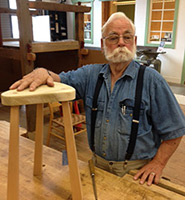 One of the highlights of Reunions '13: Reedfayre was Alumni College, a multi-disciplinary series of conversations and outings for Reedies of all ages. Aesthetics was the theme of this year's Alumni College #2 (which took place after Reedfayre), and school opened bright and early on Monday morning with a conference on Immanuel Kant’s Critique of Judgment (1790), led by Jan Mieszkowski [German 1997–].
One of the highlights of Reunions '13: Reedfayre was Alumni College, a multi-disciplinary series of conversations and outings for Reedies of all ages. Aesthetics was the theme of this year's Alumni College #2 (which took place after Reedfayre), and school opened bright and early on Monday morning with a conference on Immanuel Kant’s Critique of Judgment (1790), led by Jan Mieszkowski [German 1997–].
Mieszkowski started the conference with a question that is central to Kantian aesthetics: what does it mean to say that an object is beautiful? Naturally the gathered Reedies—including Harry Travis ’69, Lowell Weitkamp ’58, Carole Maxwell Stuart ’63, Monica Mayper ’73, and Chilton Gregory ’60—turned to the objects at hand: the stools they had built by hand under the tutelage of master woodworker Gary Rogowski ’72 the previous day. The group agreed that Chilton’s stool was particularly attractive, but Kant’s claim that a true aesthetic judgment was devoid of all interest provoked skepticism in some of the conference participants. Evolutionary biology, the Russian painter Wassily Kandinsky, and rose gardening were topics in the fiery debate on beauty and genius that followed.
In the afternoon the debate over aesthetics carried over to the kitchen, where the James-Beard-award-winning chef Diane Morgan ’77 took the same group of scholars through a series of recipes. Other sessions included:
Continue reading Kant, Reed, and the Aesthetics of Stools
Reed and the Sixties
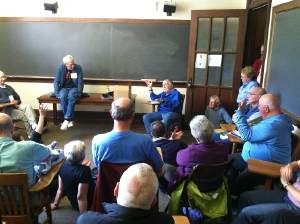
Dozens of alumni packed themselves into a little classroom in Eliot Hall today for a chance to hear Professor Emeritus Marvin Levich [philosophy 1953–1994] discussing that most perplexing of subjects, the sixties.
The dapper suits and plume of cigarette smoke that once signaled his presence were long gone, replaced by blue jeans, sneakers, and a flat cap. He walks slowly down the hallway and his voice no longer booms—in fact, it sounds more like the rasp of sandpaper. But his eyes—and his ideas—have lost none of their intensity.
Continue reading Reed and the Sixties
Chem Major Nabs Class of ’21 Award
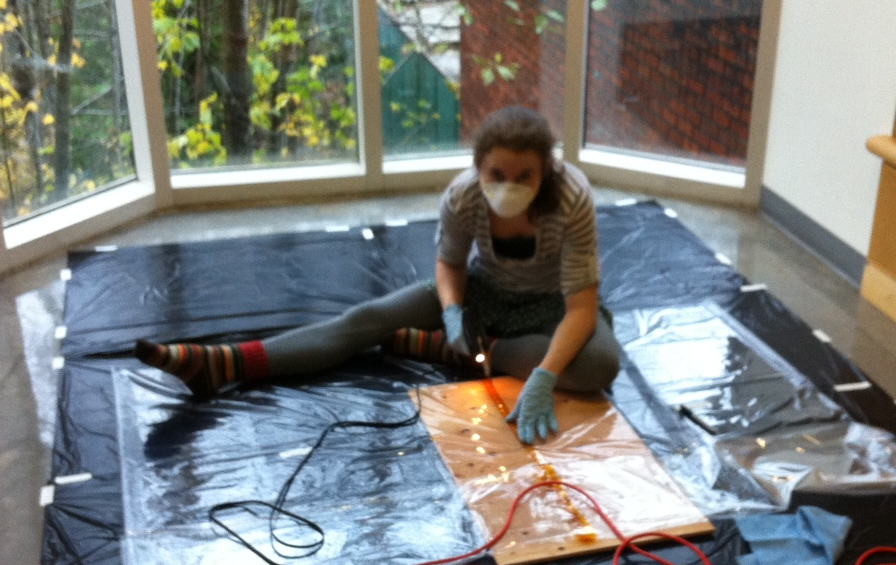 The effect of nitrogen dioxide on aerosol formation might not sound like a particularly creative field of study—unless you study chemistry at Reed.
The effect of nitrogen dioxide on aerosol formation might not sound like a particularly creative field of study—unless you study chemistry at Reed.
Chem major Danielle Draper ’13 just won the coveted Class of ’21 Award, recognizing exceptional creativity, initiative, and spontaneity, for her thesis, which looked at how nitrogen dioxide (NO2) emitted by vehicles affects the formation of aerosols, or tiny particles, in forests. It turns out that trees naturally emit gasses—like those responsible for the scent of spruce needles—that turn into aerosols in the atmosphere. Danielle wanted to know how that process was affected by manmade emissions--in other words, how humans are changing the “natural” flow of a forest. In particular, she investigated this reaction as it occured at night, under the cover of darkness.
To conduct her experiments, Danielle had to construct an atmospheric chamber, build a special computer model to study chemical kinetics, and analyze reams of data. Her findings were intriguing. While most tree emissions (e.g. the spruce-scent particles) react with NO2 to create more particles in the atmosphere than they would have alone, alpha-pinene, an emission largely found in pine trees, actually produced fewer particles when combined with NO2.
Continue reading Chem Major Nabs Class of ’21 Award
Getting Funky at Reunions
Saturday night at Reunions '13: Reedfayre, June 12-16, doesn’t begin with the fireworks. This year, it starts with Tezeta Band, Portland’s premier Ethiopian-style rock band. Tezeta Band is a sort of reunion in itself: the band is composed of members of the Five Fingers of Funk, the hip-hop funk fusion band that rocked Portland in the 1990s.
Formed in 1992, with a career that spanned nearly 10 years, Five Fingers was the Pacific Northwest’s premier hip-hop experience, opening for the likes of De La Soul, The Roots, and Run DMC. Five Fingers wound down in the early oughts, with frontman-rapper Pete Miser leaving Portland for Brooklyn. The rest of the band stayed in the Rose City, however, and, after a few years pursuing their own projects, came back together in 2006 to explore new sonic territory: Ethiopia. For the last seven years the band has jammed on the unique fusion of jazz, rock, soul, and traditional African that defined Ethiopian music during its golden era of the 1960s and ’70s (captured in the wonderful album series Éthiopiques). Tezeta will be bringing all their influences on Saturday evening, so whether you’re a hip-hop head or a funk connoisseur, come on down to the SU and be prepared to boogie.
Continue reading Getting Funky at Reunions
Restoring a masterpiece, solving a mystery
The New York Times ran a fascinating story this week about the restoration of a landmark painting by Jackson Pollock, One: Number 31, 1950. The piece explains how conservators at the Museum of Modern Art, led by Jim Coddington ’74, restored the giant canvas that the Times characterized as a “masterpiece of Astract Expressionism.”
As they began the painstaking work of removing decades of grime from the painting, Coddington and his colleagues made a shocking discovery: some areas of the canvas were marked by synthetic resin, a kind of paint that Pollock had not been known to use. Furthermore, the resin had been applied using a sort of brushstroke that was unlike Pollock’s style. As Coddington told the Times, the sections showed a “fussiness that has nothing to do with the way Pollock applied paint.”
The evidence strongly suggested that these portions of the canvas had been painted over by someone else, possibly in an attempt to cover up some small cracks. But how could he be sure?
Continue reading Restoring a masterpiece, solving a mystery
The Turning of the Thesis
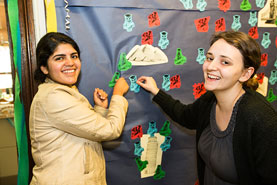
Making thesis deadline also entitles seniors to add their names to the thesis board outside the registrar's office. Photo by Eren Veziroglu ’16
Sociology major Brittany Wideman ’13 nudges the stack of paper across the counter and takes a deep breath. Her senior thesis, representing a year of intensive work (and two all-nighters over the past week), is now in the hands of the registrar’s office. More specifically, the hands of graduation specialist Mark Fowler, whose job it is to check over the final drafts of the theses to make sure that they conform to style guidelines: title page formatted properly, page numbers in the correct spot, adviser signature on the right line, etc.
Continue reading The Turning of the Thesis
Looking back, thinking ahead, loving Reed
I love Reed. And by virtue of the fact that you are reading this, I assume you too have strong and hopefully very positive feelings about this place. Don’t get me wrong; sometimes Reed kicks my butt. And I know I am not alone in this regard. While it may be painful in some moments, I almost invariably love Reed more after the smack down, because it seems to me that we keep getting stronger, especially when we face our challenges together. Even in the midst of our most acrimonious debates, we are fundamentally in this together.
As Renn Fayre kicks off, I’m taking a moment to think about the year we are celebrating, and I wanted to share some thoughts with you. When it comes down to it my primary focus at Reed is student success. Knowing full well that even the phrase “student success” may raise for some the specter of nannyism, I am nonetheless unapologetic about the college’s commitment to student health, safety, and success. In turn, I am very proud of our alcohol and other drugs (AOD) prevention and response efforts, and I figured this might be a good time to say a word or two in this regard.
Continue reading Looking back, thinking ahead, loving Reed
Davis Winner Hatches Scholarship Plan
To win the Davis Project for Peace, Desmond Rgwaringesu ’14 had to count his chickens before they hatched.
This summer he plans to return to his native Zimbabwe and raise chickens to support village kids going to school.
Now in its sixth year, Davis Projects for Peace awards $10,000 to undergraduates to implement grassroots projects that promote peace.
Having won the prize, Desmond will return to Gokomere, a myriad of villages scattered around a farm founded by Jesuit missionaries in the 19th century. The area is served by two primary schools and a Catholic high school where most of the students are boarders.
There is a serious achievement gap between those students whose families can afford to board them and the day-scholars that walk to school each day from home.
Continue reading Davis Winner Hatches Scholarship Plan
Celebrating “4/20” At Reed
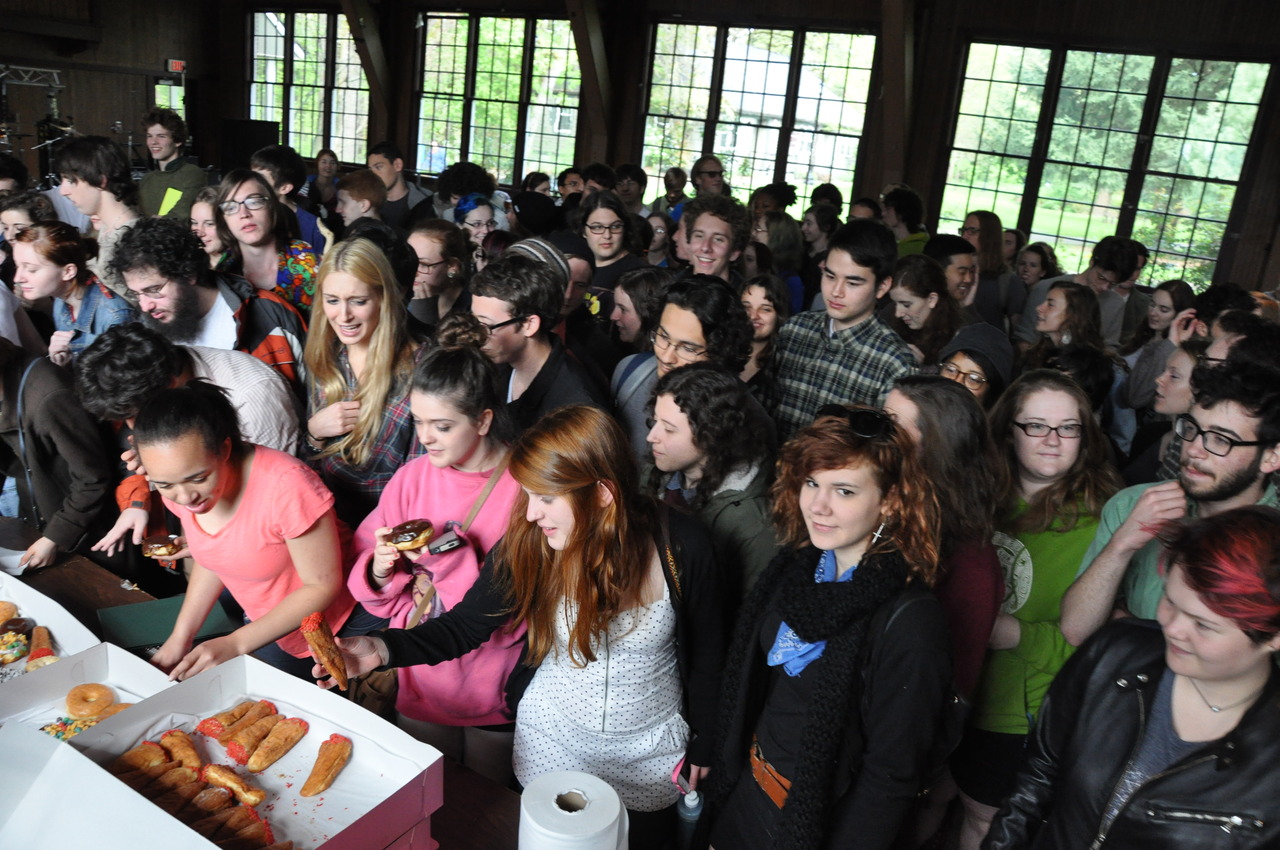
Reedies were out in force in the student union on Saturday, April 20, which has become—for better or worse—an international day of inhalation among cannabis enthusiasts.
Tradition calls for pot smokers to light up their joints at exactly 4:20 p.m., but hundreds of Reed students instead observed the moment by munching on free donuts. As the clock ticked down to 4:20 p.m., the SU was filled not with the skunky odor of marijuana, but with students eagerly anticipating their chance to partake of a communal feast on torus-shaped pastry. And it was all courtesy of the man who has become the most public face of Reed’s policy on alcohol and other drugs (AOD)—Gary Granger, director of community safety.
Continue reading Celebrating “4/20” At Reed
Occupying Wall Street—From the Inside Out
When you think of Reed, you don’t usually think of Wall Street. But why not? With our long tradition of rigor, hard work, dedication, and talent, a surprising number of Reedies have pursued successful careers in the world of finance—pinstripes notwithstanding.
Last month, the Investment Committee of the Reed’s board of trustees made an irresistable offer. Over spring break, eight lucky students—out of 20 who applied—would fly to New York City, all expenses paid, in order to get a better insight into the rigors, challenges, and culture of Wall Street. We spent four action-packed days meeting with bankers, hedge fund experts, and economic consultants. We also toured the NYSE trading floor and got to touch the Charging Bull, with Lady Liberty visible in the distance.
Continue reading Occupying Wall Street—From the Inside Out
The Perfect Dinner
As the Reed community recently discovered, international cuisine pleases the palate, but international guests make a home-cooked meal singular.
On Friday, April 5, the Reed community and its neighbors invited students from more than 70 countries to dine in their homes as part of Home Hospitality Evening.
Continue reading The Perfect Dinner
Farewell Professor Rhyne
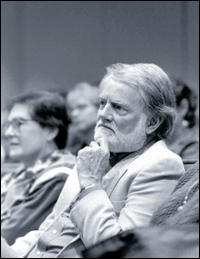
Professor Charles S. Rhyne [art history 1960–1997] died on Sunday, April 14, as the result of a massive stroke. An eminent art historian, he was internationally renowned for his wide-ranging interests in the field, from the English landscape painter John Constable to the theory and practice of conservation, Northwest Coast American Indian art, and the use of digital images in research and teaching.
He was born in Philadelphia in 1932, the second son of the Rev. Dr. S. White and Ruth D. Rhyne. He was a graduate of Central High School, Philadelphia, and Wittenberg College, Springfield, Ohio. Between high school and college he attended Temple University’s Tyler Art School. As a student he ran track and cross-country and was proud of the fact that his Ohio Conference record for the 880 stood for many years.
Continue reading Farewell Professor Rhyne
Reedies Hold Union on Student Autonomy
What does “student autonomy” mean? Does the autonomy of the student body differ from that of individual students? How should student autonomy exist in practice? Does student autonomy exist at all? These were some of the questions raised Thursday night in a packed chapel in Eliot Hall for the Reed Union on Student Autonomy.
The Union, officially “Student Autonomy: Its Possibilities and its Limits," consisted of a panel of five speakers, each of whom gave short speeches before the floor was opened to the audience. Historian John Sheehy ’82, author of Comrades of the Quest, moderated the panel and opened the event. Following him was Lilli Paratore ’13, history senior and chair of the Judicial Board; professor Kris Anderson [psychology 2007–], who specializes in young adult development; professor Peter Steinberger [political science 1973–]; Dean of Students Mike Brody; and student body president Ari Galper ’14. President John Kroger was also present, but as a member of the audience rather than a panelist.
Continue reading Reedies Hold Union on Student Autonomy
< Prev 1 2 3 4 5 6 7 8 9 10 11 12 13 14 15 16 17 18 19 20 21 22 23 24 Next >

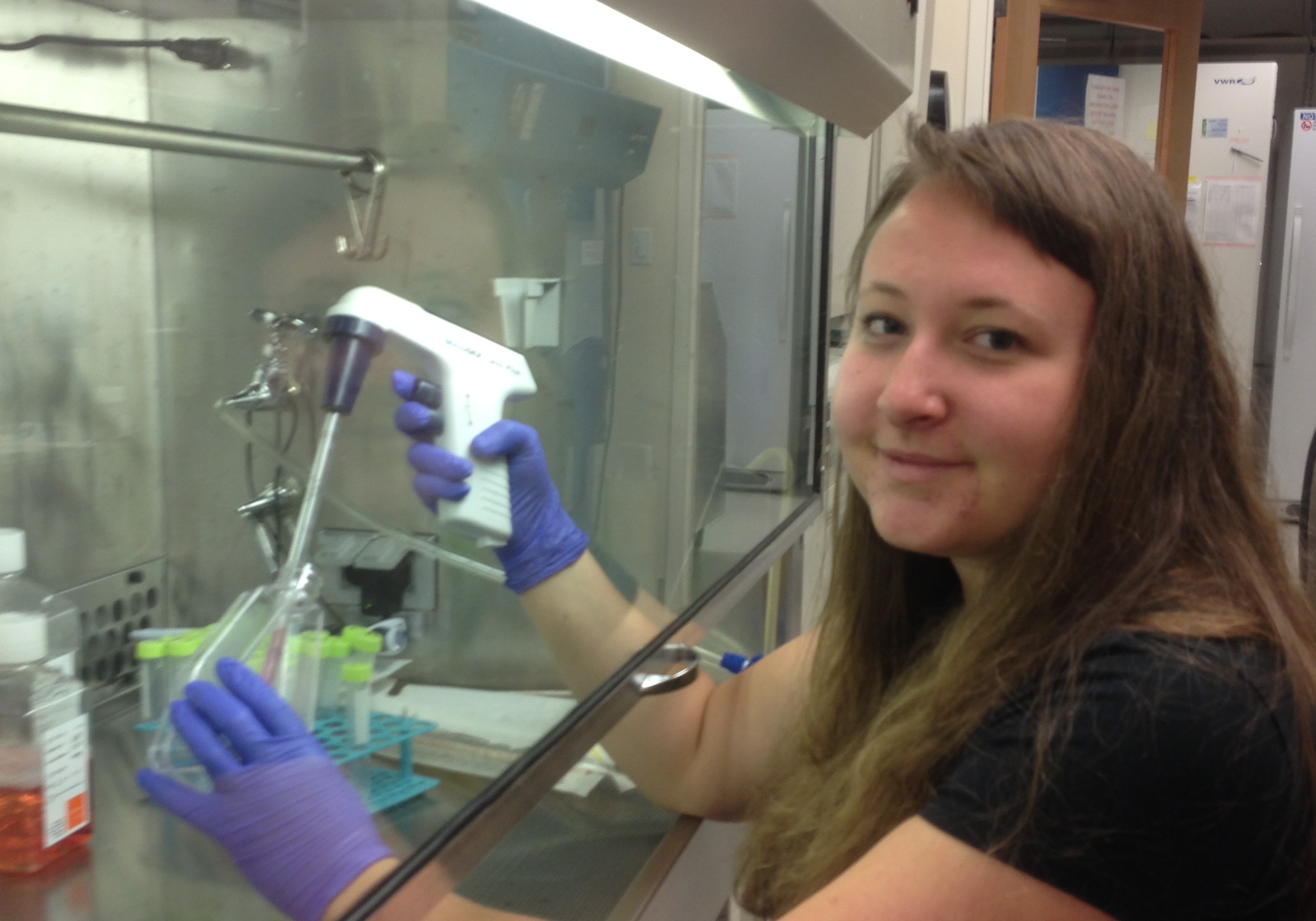
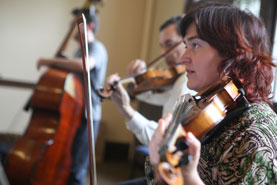
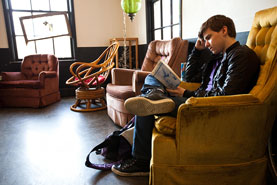
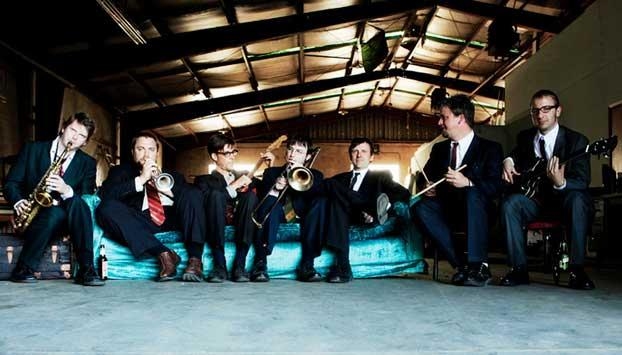
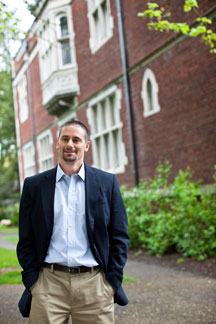
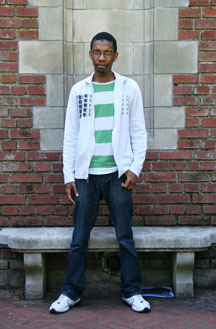
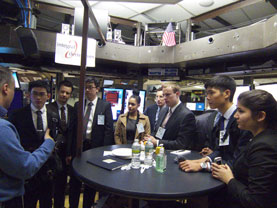
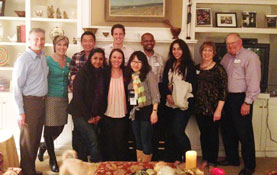

LATEST COMMENTS
steve-jobs-1976 I knew Steve Jobs when he was on the second floor of Quincy. (Fall...
Utnapishtim - 2 weeks ago
Prof. Mason Drukman [political science 1964–70] This is gold, pure gold. God bless, Prof. Drukman.
puredog - 1 month ago
virginia-davis-1965 Such a good friend & compatriot in the day of Satyricon...
czarchasm - 4 months ago
John Peara Baba 1990 John died of a broken heart from losing his mom and then his...
kodachrome - 7 months ago
Carol Sawyer 1962 Who wrote this obit? I'm writing something about Carol Sawyer...
MsLaurie Pepper - 8 months ago
William W. Wissman MAT 1969 ...and THREE sisters. Sabra, the oldest, Mary, the middle, and...
riclf - 10 months ago